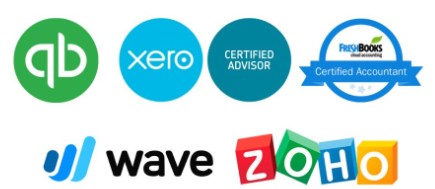
Choosing the Right Bookkeeping Software

Choosing the Right Bookkeeping Software: A Guide for Small Businesses
Introduction
In today’s digital age, bookkeeping software has become an indispensable tool for small business owners. The right software can streamline your financial operations, save you time, and provide valuable insights into your business’s performance. However, with so many options available, choosing the best software for your needs can be overwhelming.
This guide will help you understand the key factors to consider when selecting bookkeeping software and provide recommendations for popular options.
Key Factors to Consider:
- Features:
- Expense tracking: Ensure the software can easily track and categorize your expenses.
- Invoicing: Look for features that allow you to create and send professional invoices.
- Payroll processing: If you have employees, consider software with built-in payroll capabilities.
- Financial reporting: The software should generate clear and customizable financial reports, such as income statements and balance sheets.
- Tax preparation: Check if the software can help you prepare your taxes or integrate with tax preparation software.
- Ease of Use:
- Choose software that is intuitive and easy to navigate, especially if you’re not tech-savvy.
- Look for a user-friendly interface and helpful documentation.
- Integration:
- Consider software that integrates with other business tools you use, such as payment processors, CRM systems, or time tracking software.
- Scalability:
- Choose software that can grow with your business. As your business expands, your bookkeeping needs may change.
- Cost:
- Compare pricing plans and features to find the best value for your money. Consider factors such as monthly fees, additional costs for premium features, and support options.
Recommended Bookkeeping Software:
- QuickBooks Online: https://quickbooks.intuit.com/login/
- Xero: https://www.xero.com/
- FreshBooks: https://www.freshbooks.com/
- Wave: https://www.waveapps.com/
- Zoho Books: https://www.zoho.com/us/books/
Tips for Choosing the Right Software:
- Assess your needs: Determine the specific features you require based on your business’s size and complexity.
- Try a free trial: Many software providers offer free trials or demos, allowing you to test the software before making a commitment.
- Consider your team’s needs: If you have employees who will be using the software, make sure it is user-friendly and easy to learn.
- Seek recommendations: Ask other small business owners or professionals for advice on choosing bookkeeping software.
Conclusion
Choosing the right bookkeeping software is essential for the efficient management of your small business’s finances. By carefully considering the factors outlined in this guide, you can find a tool that will streamline your operations, save you time, and provide valuable insights into your business’s performance.
